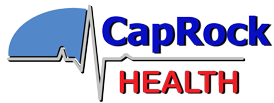Addiction to substances such as alcohol or other drugs of abuse can lead to serious harm to the user and family and friends close to them. Fortunately, addiction is a medical condition that can be treated. As with most illnesses, early diagnosis and treatment are key to the best outcomes. Here we will discuss ways to identify addiction to hasten diagnosis and treatment.
How do I know if I have a substance abuse problem?
The use of a substance is considered “abuse” when doing so causes problems in a person’s life. For example, alcohol use is common and on a limited level doesn’t constitute abuse. Alcohol abuse occurs when you use alcohol in spite of negative consequences, like repeated DUI arrests, or damage to important relationships. Addiction occurs when a person cannot discontinue the use of a substance, even when they deeply want to. Substance abuse can be hard to spot, but here are some signs to watch for:
It’s difficult to think about anything else
A major sign of substance addiction is difficulty not thinking about the substance. If you find yourself constantly thinking about using a substance, when you should be thinking about work or school or something else, you may have a drug problem.
You need increasing doses to feel the substance’s effect.
Over time, your body adapts to the amount of the substance you take. This is referred to as habituation. This leads to needing ever higher doses in order to obtain a similar effect.
You experiencing withdrawal symptoms.
If you stop using a substance to which you are habituated, you will experience emotional or physiological symptoms that are unpleasant or dangerous to your health. These symptoms are called withdrawal and vary depending on the substance. Some common symptoms of withdrawal syndromes include:
- Anxiety
- Depression
- Trembling
- Nausea
- Paranoia
- Irritability
- Loss of appetite
You go through extreme measures to acquire the substance.
Due to the extremely unpleasant or even dangerous nature of discontinuing a substance that you are addicted to, you might go to extreme measures to obtain the substance, including spending money that you don’t have or even breaking the law. This is strongly suggestive of substance addiction.
You ignore work, family, and friends.
If you use a substance rather than attending to your responsibilities at work or at home, you might have a substance addiction.
How do I recognize drug addiction in loved ones?
Noticing drug addiction in those close to you can be difficult, but you may notice some changes in them that could indicate a drug addiction.
They are experiencing issues at school or work.
Suddenly receiving lower grades, increased tardiness, truancy, and lack of motivation could be a sign of depression, but it may also be a sign of substance addiction.
They have new or worsening health issues.
Illicit drugs can cause a myriad of both physical and mental health problems. Some may include depression, anxiety, chest pain, panic attacks, memory problems, and much more. If the onset of these symptoms seems sudden, substance addiction could be the culprit.
Their appearance has changed.
Some drugs can make physical changes to your body, such as dental health with methamphetamine, but these usually appear after long-term use. In the beginning, there may be other subtle changes like poor personal hygiene, ungroomed hair, or signs of injecting into veins.
They are behaving differently.
Those with a substance addiction may experience a sudden change in behavior. They may have increased anxiety and agitation, or they may stop being as social as they once were. They may be less reliable, unusually anxious, unusually hyperactive, or overly sleepy.
They have problems with money.
Most addictive substances are expensive, and along with the difficulties at work that often accompany them, substance addiction often leads to financial difficulty.
When drug addiction is an emergency
Drug addiction can become an emergency. In fact, tens of thousands of Americans each year accidentally overdose and die from substances they are addicted to. Seek immediate medical attention if you notice the following in yourself or someone close to you:
- Unresponsiveness or extreme drowsiness
- Chest pain
- Labored breathing
- Seizures
- Dangerous behavior
- Paranoia or hallucinations
If you think you have an addiction to a substance, speak with your doctor now. If you believe you or a loved one is experiencing an overdose or other emergency related to a substance, CapRock can help and is available 24 hours a day.

